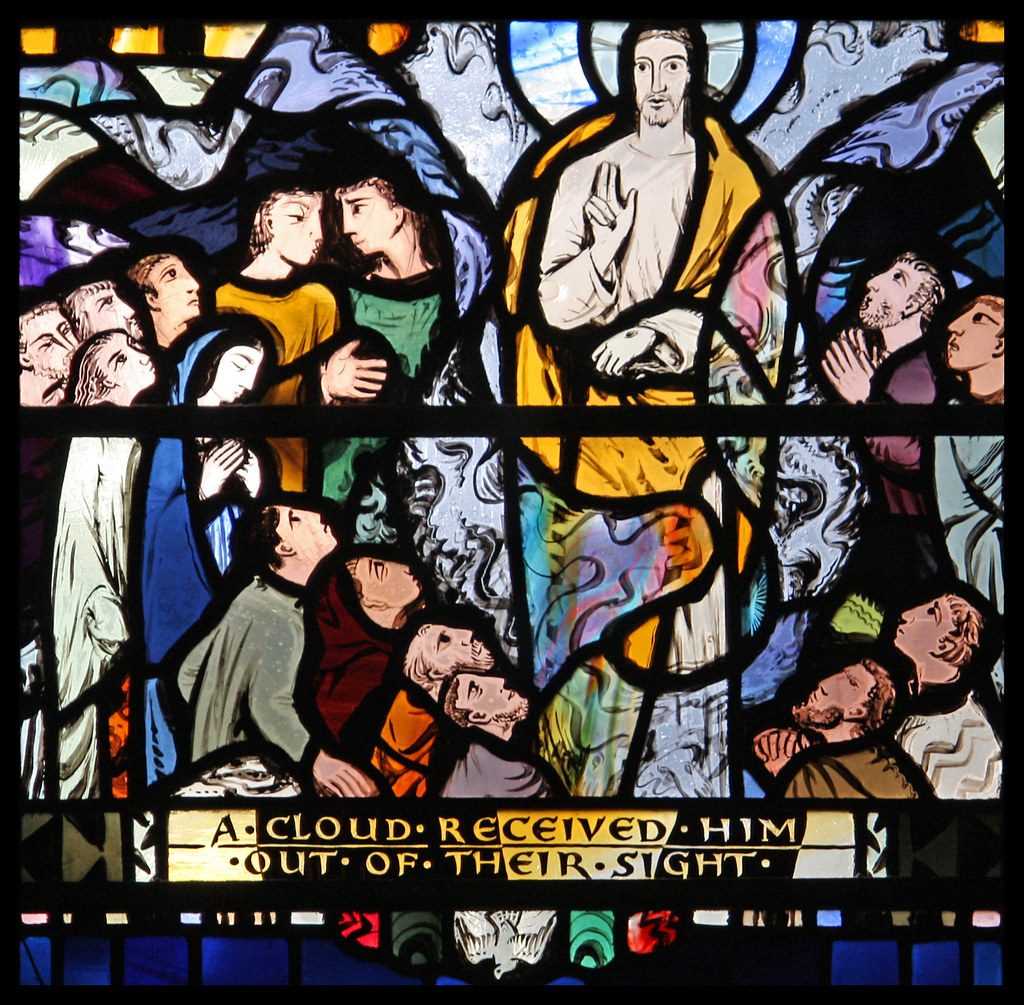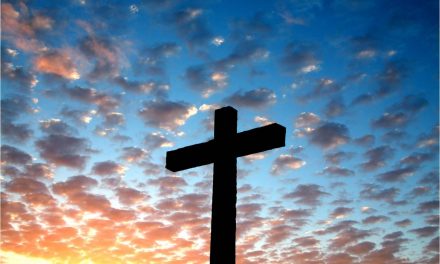
This is a guest post by Dr. Victor Carmona, Assistant Professor at the University of San Diego.
The readings for the Solemnity of the Ascension of our Lord can be found here on the USCCB website.
- First Reading – Acts 1:1-11
- Responsorial Psalm – Ps 47:2-3, 6-7, 8-9
- Second Reading – Eph 1:17-23, or 4:1-13, or 4:1-7, 11-13
- Gospel Reading – Mk 16:15-20
This week, the liturgical calendar places us at the uneasy time that lies between the ascension of Jesus and the disciples’ reception of the Holy Spirit in Pentecost. Today’s gospel of Mark has Jesus commission his disciples “to proclaim the gospel to every creature.” After doing so, it describes Jesus as “taken up into heaven [where he] took his seat at the right hand of God.” After Jesus left them, Mark then simply states that his disciples “went forth and preached everywhere.”
I appreciate Mark’s economy with words. And yet, today’s gospel reading is another one of those moments when things just happen too quickly in the text. From that perspective, this week the liturgical calendar invites us to pay attention to the time, long or short, that lies between Jesus’ sending forth of his early followers and their reception of the Spirit that lovingly assures them—and with them, us—of the necessary gifts to carry out their mission.
In its wisdom, the Church has kept the original, longer, and shorter endings to the gospel of Mark. Its discernment gifts us today with a sense of the faith and the fear that Jesus’ early followers and their communities experienced. Today’s gospel reading picks up from the original ending (in Mk 16:8), which gives us an honest assessment of the disciple’s reaction after they received news of Jesus’ resurrection: “they went out and fled from the tomb, seized with trembling and bewilderment. They said nothing to anyone, for they were afraid.” Their fleeing, silence, and fear will eventually give way, once they have received the Spirit, to unity, proclamation, and faith. But what happens in between those experiences? The Gospel of Mark is itself silent on that moment, but the first reading hints at it.
Today’s first reading tells us of the disciples’ ongoing formation at the hands of the resurrected Jesus. There, his ascension marks the completion of their formation and his promise that they will receive the Holy Spirit. The book of Acts marks the fulfillment of that promise with these words simply: “When the time for Pentecost was fulfilled” (Acts 2:1) While the disciples’ fear after Jesus’ resurrection eventually gives way to the fullness of faith in the Spirit, the time in between has me appreciate a wager that both Jesus and his disciples make in each other. Jesus trusts that his disciples are ready enough and leaves them. Their formation is complete. His disciples trust that Jesus’ promise will come to pass. That the power to act towards their mission will come “in a few days (when they) will be baptized with the Holy Spirit.” (Acts 1:5)
While many in our faith communities are celebrating the gradual end to the Covid pandemic (and rightly so), many more are still mindful of tasks that feel even more impossible than ever: immigration reform and the end of our country’s ongoing racism epidemic. It is as if not even the pandemic’s horrific toll in our lives and our communities has managed to move our hearts. This moment in our lives echoes the in-between time that Jesus’ disciples experienced. With many fellow disciples today, I am conscious of the enormity of the task ahead. Proclaiming the Good News of God’s love amidst such brutal, grinding, sinful realities seems impossible, as does our liberation from them. And yet, today’s readings remind us, if gently, that we have the gifts that we need to take up our mission as a community of disciples, even when we know that we may not see it to its completion. The disciples’ wager in Jesus ended in Pentecost. Jesus’ wager in us continues.



Trackbacks/Pingbacks